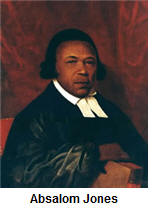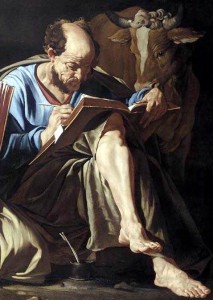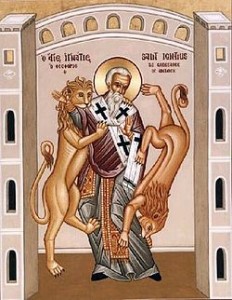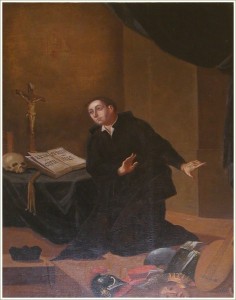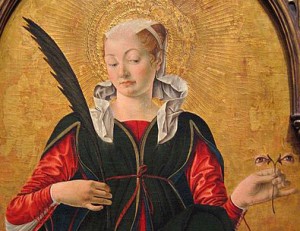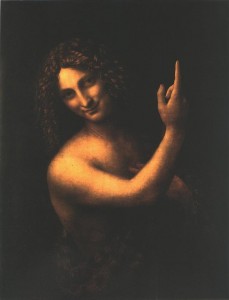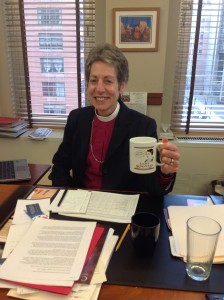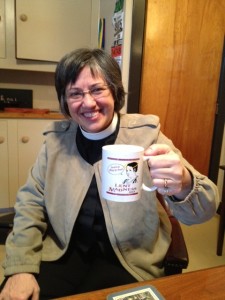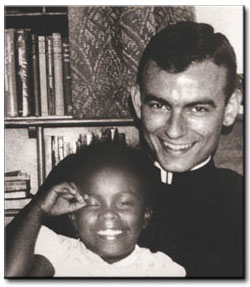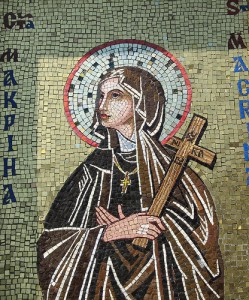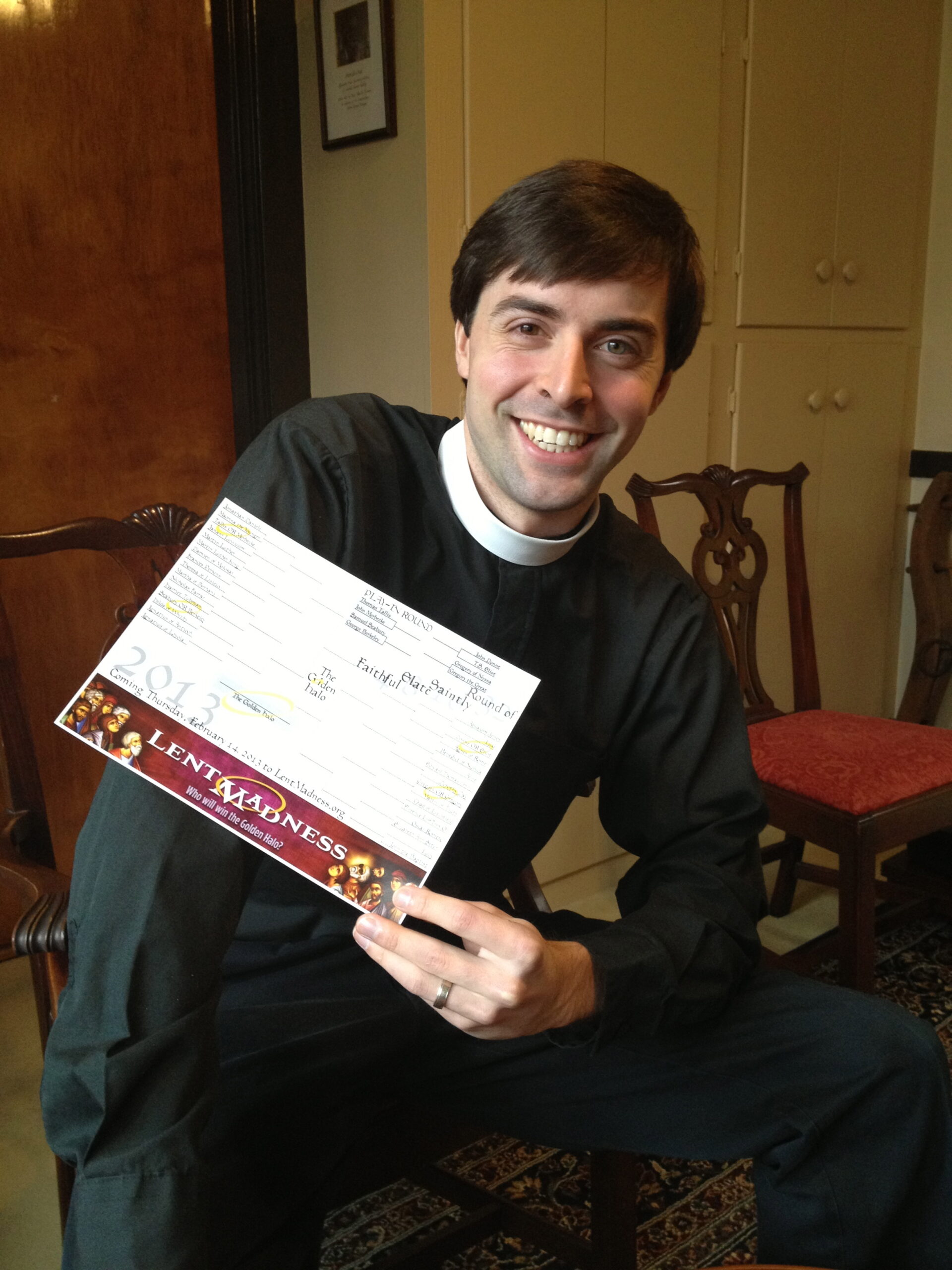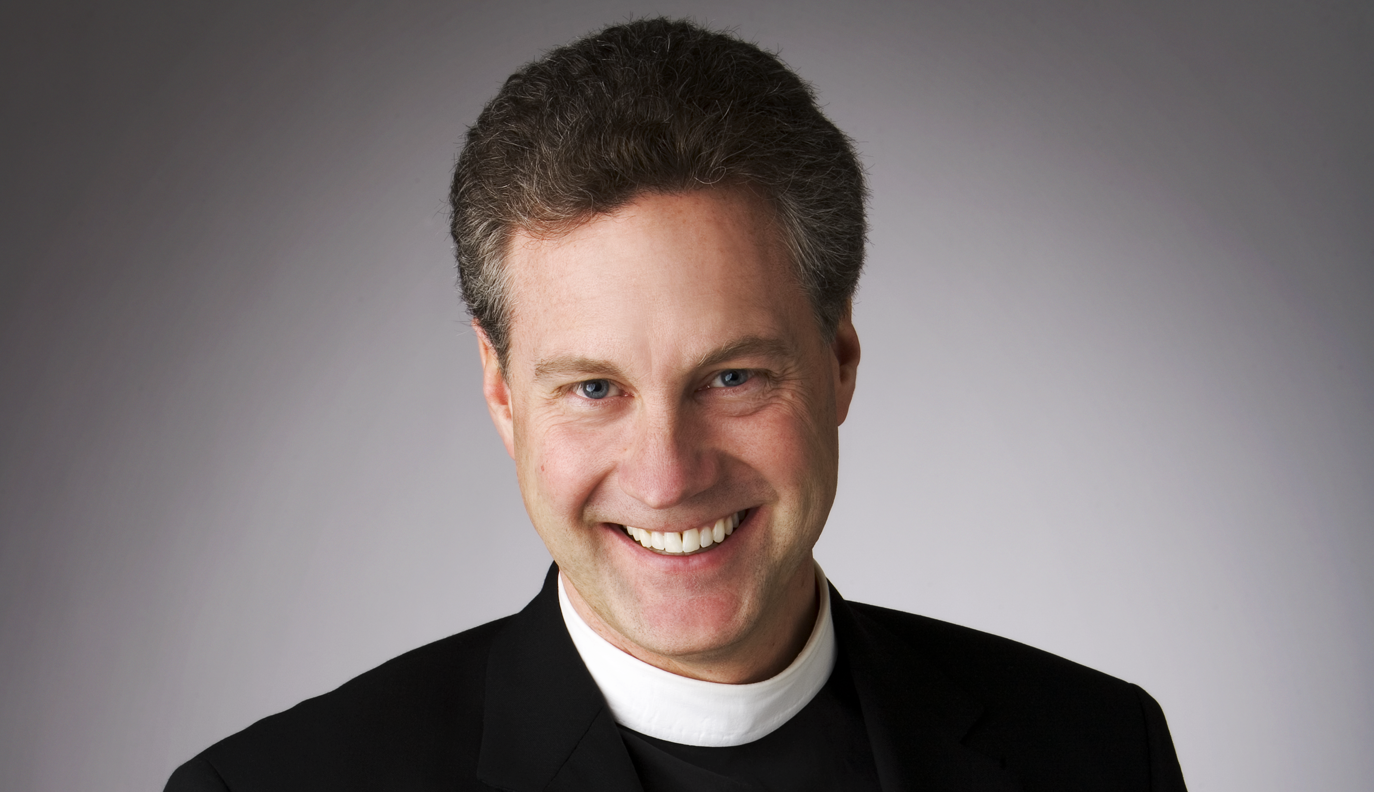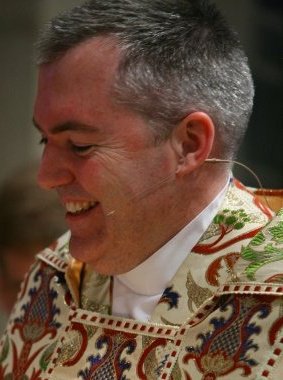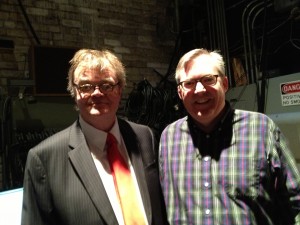With the short "Ash Week" behind us, we're plowing ahead into the first full week of Lent Madness 2013. We've already seen some nail biters, some controversy, and some bracket-busting upsets. Today we have the first African-American Episcopal priest facing off against the writer of one of the synoptic gospels.
Some have commented over the past few days, especially in light (no pun intended) of Lucy besting John the Baptist, on the insanity of this little online devotional. This is nothing new around here. We often hear "How in the world could saint XX beat saint YY?" Of course the whole notion of saints competing against one another is absurd. But just when you get ready to yank your hair out by the roots, remind yourself that it's called Lent Madness, after all, not Lent Sanity. We learn about saints, we advocate passionately for those we particularly connect with, we win some, we lose some, and we're inspired in some way by them all.
As things continue to heat up, don't forget to tell your friends about Lent Madness via social media, email, or even a phone call -- it's never too late to jump into the fray! Oh, and if you're looking to find out when your favorite saint is set to square off, check out the Match-Up Calendar courtesy of Bracket Czar Adam Thomas.
Absalom Jones, who would become the first American-born man of African descent to become a priest in the Episcopal Church, was born into slavery in Delaware in 1746. At 16 he was separated from his family and sold to a storekeeper in Philadelphia. Having already taught himself to read as a boy, he learned to write with the help of a clerk in the store and at a night school for blacks run by Quakers.
His owner allowed him to work after hours and keep what he earned. It’s said he often worked until midnight or 1:00 am to raise funds to buy the freedom of his wife, Mary, whom he had married in 1770. Her freedom, attained in 1778, ensured that their children would be free as well. Seven years later, when he was 38 years old, he had saved enough to buy his own freedom.
During that period, while a member of St. George’s Methodist Church, Jones met his lifelong friend, Richard Allen. Their enthusiasm brought in many black members to the interracial congregation. However, in 1786, white members met and voted that black members must be segregated to the upper gallery. The following Sunday Jones and Allen sat down in church, and, according to James Kiefer, “ushers tapped them on the shoulder during the opening prayers, and demanded that they move to the balcony without waiting for the end of the prayer. They walked out, followed by the other black members.”
The following year Jones and Allen founded the Free African Society to help widows, orphans, and assist those who were newly free to adjust to urban life. Jones saw religious life and social action as going hand-in-hand. Members paid dues that helped support the efforts. Other activities included protesting slavery and lobbying for the repeal of the Fugitive Slave Act before Congress. They also founded schools and an insurance company.
In 1792 Jones and Allen established the first black church in Philadelphia, St. Thomas’ African Episcopal Church, and petitioned Bishop William White to allow them to become a parish in the Episcopal Church, having had it with the Methodists. The congregation was admitted to the diocese but banned from participation in Diocesan Convention until 1864, long after its founders’ deaths.
Jones was ordained a deacon in 1795 and a priest in 1802 (though other sources maintain it was in 1804). He was known to be a wonderful orator and an attentive and much-beloved pastor. He died in 1818 at his home in Philadelphia, a free man and treasured child of God.
Collect for Absalom Jones
Set us free, heavenly Father, from every bond of prejudice and fear; that, honoring the steadfast courage of your servant Absalom Jones, we may show forth in our lives the reconciling love and true freedom of the children of God, which you have given us in your Son our Savior Jesus Christ; who lives and reigns with you and the Holy Spirit, one God, now and for ever. Amen.
-- Heidi Shott
If Luke the physician had a specialty, it was probably family medicine. Or perhaps ob/gyn. After all, Luke’s gospel is the only one to report on the pregnancy of Elizabeth, as John leapt in her womb, as well as the details of Mary’s pregnancy and Jesus’ birth. Matthew, squeamishly, merely reports that Mary “had borne a son.” Luke includes shepherds, angels, mangers, and swaddling cloths, which he probably understood needed regular changing.
There is some conjecture that Luke was a ship’s doctor since he seems familiar with different cultures and comfortable with travel. He journeyed with Paul and Timothy to Macedonia, remaining at Philippi while Paul carried on to Thessalonica, joining up again as Paul headed back on his way to Jerusalem. Paul sends greetings from “Luke, the beloved physician” to the church at Colossae (Col 4:14). Paul was probably writing this from Rome where he was imprisoned, meaning Luke faithfully provided support and friendship through all of Paul’s travails. When Paul wrote “I have fought the good fight, I have finished the race,” he adds, “Only Luke is with me” (2 Tim. 4:11).
If you thought Paul was the authorial powerhouse in the New Testament, think again. Luke the writer stealthily dominates the New Testament, with his two volume work of Luke-Acts taking up more than 25 percent of the content. It is due to Luke that we know anything at all about the early church beyond Paul’s memos. Among other things (including the stories of Jesus’ birth), Luke gave us the Good Samaritan, the Prodigal Son, the story of Zaccheus, the healing of the bent-over woman, Jesus’ appearance on the road to Emmaus, the arrival of the Holy Spirit on Pentecost, Peter’s ministry to the Gentiles, Saul’s conversion, and Paul’s missionary journeys in narrative form.
In addition, it is due in large part to Luke that we believe God’s love through Jesus Christ transcends race, class, and gender, being a gift to all people. At the beginning of Luke’s gospel when Jesus is presented at the temple, Simeon proclaims him “a Light to enlighten the nations,” and at the beginning of Acts, just before Jesus ascends into heaven, he tells the disciples, “you will be my witnesses in Jerusalem, in all Judea and Samaria, and to the ends of the earth.”
No one knows how Luke died. What are thought to be his remains are buried in Padua, Italy.
In Acts, Peter says, “I truly understand that God shows no partiality, but in every nation anyone who fears him and does what is right is acceptable to him.” Through his writing and ministry, it would seem no one knew that more deeply than Luke.
Collect for Luke
Almighty God, who inspired your servant Luke the physician to declare in the Gospel the love and healing power of your Son: Graciously continue in your Church the same love and power to heal, to the praise and glory of your Name; through your Son Jesus Christ our Lord, who lives and reigns with you, in the unity of the Holy Spirit, one God, now and for ever. Amen.
Vote!
[poll id="44"]

